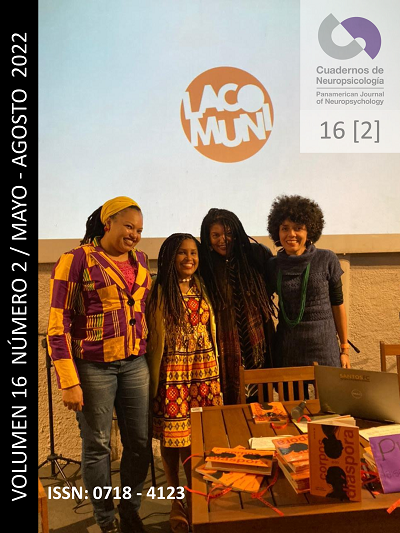Assessment of cognitive impairment in low-resources contexts (the venezuelan example): are the mini-mental status examination and the clock drawing test useful?
Abstract
ABSTRACT
This retrospective study aimed to explore the diagnostic validity of the Mini-Mental Status Examination and the Clock Drawing Test, and a composite score of both tests while controlling for age and years of education in a Venezuelan sample, in order to determine if these tools are capable of discriminating different types of cognitive complaints. The sample included healthy controls (n=456), patients diagnosed with Alzheimer's disease (n=28), mild cognitive impairment (n=50), depression (n=30), and patients with a subjective cognitive complaint which was not corroborated by clinical and psychometric assessment (n=29). The General Linear Model and logistic regressions revealed that these tests have a moderate degree of sensitivity when discriminating between the control and Alzheimer’s Disease mild groups while controlling for age and years of education, but do not assist with the differential diagnosis with the other clinical groups. The predictive validity of both tests used together is comparable to the one observed when the tests are used separately.
Palabras clave: evaluación, diagnóstico, cribado, validez, déficit cognitivo.
Â
RESUMEN
Este estudio retrospectivo tuvo como objetivo explorar la validez diagnóstica del MMSE y el Test del Dibujo del Reloj, y una puntuación compuesta de ambas pruebas controlando por edad y años de educación en una muestra de la población venezolana, con el fin de determinar si son capaces de discriminar diferentes tipos de quejas cognitivas. La muestra incluyó controles sanos (n=456), pacientes con diagnóstico de enfermedad de Alzheimer (n=28), deterioro cognitivo leve (n=50), depresión (n=30) y pacientes con una queja cognitiva subjetiva que no fue corroborada por evaluación clÃnica y psicométrica (n=29). El modelo lineal general y las regresiones logÃsticas revelaron que estas pruebas tienen un grado moderado de sensibilidad al discriminar entre el grupo control y el de enfermedad de Alzheimer leve mientras se controla por edad y años de educación, pero no ayudan con el diagnóstico diferencial entre los otros grupos clÃnicos. La validez predictiva de ambas pruebas usadas juntas es comparable a la que se observa cuando las pruebas se usan por separado.
Keywords: assessment, diagnosis, screening, validity, cognitive deficit.
Â
RESUMO
Este estudo retrospectivo teve como objetivo explorar a validade diagnóstica do Mini-Exame do Estado Mental e do Teste do Desenho do Relógio, e uma pontuação composta de ambos os testes, controlando idade e anos de escolaridade em uma amostra da população venezuelana, a fim de determinar se são capazes de discriminar diferentes tipos de queixas cognitivas. A amostra incluiu controles saudáveis (n=456), pacientes com diagnóstico de doença de Alzheimer (n=28), déficit cognitivo leve (n=50), depressão (n=30) e pacientes com queixa cognitiva subjetiva não fundamentada por avaliação clÃnica e psicométrica (n=29). O modelo linear geral e as regressões logÃsticas revelaram que esses testes têm um grau moderado de sensibilidade na discriminação entre os grupos controle e da doença de Alzheimer leve, controlando por idade e anos de escolaridade, mas não são úteis no diagnóstico diferencial entre os demais grupos clÃnicos. A validade preditiva de ambos os testes usados em conjunto é comparável à quela observada quando os testes são usados separadamente.
Palavras-chave: avaliação, diagnóstico, triagem, validade, déficit cognitivo.
Downloads
How to Cite
Issue
Section
License
Articles published in this journal are protected under the Creative Commons Attribution-NonCommercial-ShareAlike 4.0 International (CC BY-NC-SA 4.0) license. This means that authors retain full rights over their research and publications at all times. As a journal, we fully respect and promote the principles of open access established by this license, allowing the work to be shared, adapted, and distributed for non-commercial purposes, provided that appropriate credit is given to the authors and any derivative works are licensed under the same terms.
Authors are responsible for obtaining the required permission when they wish to reproduce part of the material (figures, etc.) from other publications.
Likewise, CNPs allows authors to host in their personal sites or other repositories that they deem convenient the Final and Definitive Version of the published article with the format assigned by the journal. In no case do we allow access to preprints of the article under evaluation or already published.
When submitting an article to CNPs you are aware that all the contents of CNPs are under a Creative Commons License. In which it is allowed to copy and share the contents freely, always making reference to the origin of the publication and its author.












